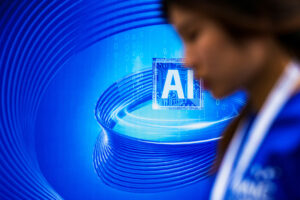By Beatriz Marie D. Cruz, Reporter
MADRID — While artificial intelligence (AI) has been replacing traditionally human tasks, human input remains the most critical element, the most important skill for entrepreneurs in an AI-driven era, an academic said.
“You’d never try to multiply numbers in your head, because you know the calculator will win, but all the things you do before and after (the automated task) are what the humans do,” Ikhlaq Sidhu, dean of IE School of Science and Technology, told journalists here on Tuesday.
“It still takes an input and an output, and there’s what you do with the output. So, the human parts are the ones that are the most relevant.”
When asked about what skill should future entrepreneurs possess as AI rapidly transforms businesses, Mr. Sidhu said: “being human… that is the number one skill.”
About 35% of Philippine leaders are considering workforce reductions to harness the productivity gains offered by AI, according to Microsoft’s 2025 Work Trends Index report.
According to Mr. Sidhu, the real danger is when “human outsource their minds to AI.”
“If you just say, ‘I don’t want to think anymore, for every question, I’ll just ask AI,’ and you turn off your critical thinking, curiosity, and the things that really drive a person, then it’s bad news for you.”
A 2025 study by Michael Gerlich, who heads the Center for Strategic Corporate Foresight and Sustainability at SBS Swiss Business School, found a negative correlation with AI tool reliance and critical thinking abilities. This emphasizes the need for “educational strategies that promote critical engagement with AI technologies,” it concluded.
Mr. Sidhu also cited the importance of integrating technical practices and industry insights when teaching science and highly technical courses.
In many universities, students’ understanding of science and technology-based programs tend to focus on teaching the fundamentals but with little practical application. This results in “narrow” learning experience disconnected from the needs of industries or ventures, Mr. Sidhu said.
“There’s some very abstract topics that people learn in technical fields, and when you spend all your time learning these abstract things, you don’t always know how to connect it to the things that are happening everyday or in the workplace,” he said.
Citing his experience as the founding director of the University of California at Berkeley’s Sutardja Center for Entrepreneurship & Technology, Mr. Sidhu noted that collaborations between students and industry yields superior results and better execution.
“You are able to take the learning and the results farther than you could than when there was only one type of student,” he said.

